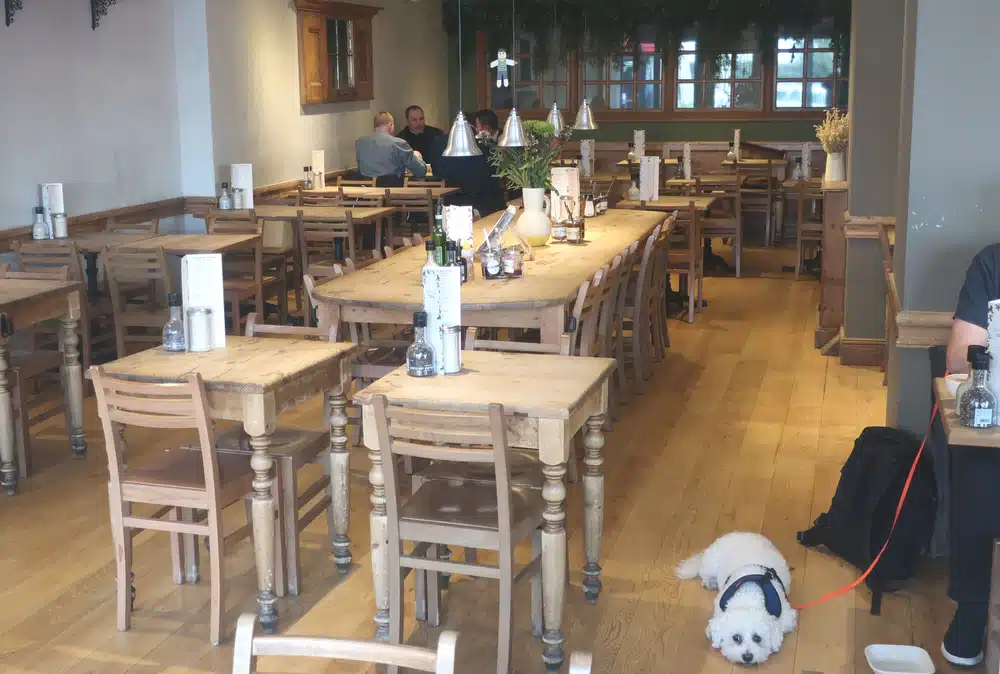
Casual dining establishments are usually less expensive than traditional restaurants, and they offer a more relaxed atmosphere. This trend has been driven by a number of factors, including the economic downturn. As people have become more mindful of their spending, they have been increasingly drawn to casual dining options.
Another major trend in the UK restaurant sector is the growth of online ordering and delivery. With the rise of food delivery apps like Just Eat and Deliveroo, it has become easier than ever for people to get their favourite meals delivered to their doorsteps.
This trend has been particularly popular with young people, who are often too busy to cook for themselves. Online ordering and delivery also offers a convenient way for people to try new restaurants without having to leave their homes.
These are just some of the major trends currently shaping the restaurant sector in the UK. As consumer tastes continue to evolve, it will be interesting to see how these trends develop in the years to come.
Here are the latest trends affecting the cafe sector in the United Kingdom.
What has been happening in the Restaurant sector?
Eating out has become increasingly popular in recent years. In Britain, there are now thousands of restaurants serving different types of food at prices to suit all budgets. The availability of cuisines from many different countries has increased dramatically, and people have become much more adventurous and knowledgeable.
Restaurants are adding low-fat and low salt options to their menus as a result of a trend toward healthy eating. The government is also under increasing pressure to do this. During 2014, allergen information regulations were introduced that require caterers such as cafes and restaurants to provide their customers with information regarding 14 specific allergens. If you would like to include this information in your menus, or if you would like to provide it verbally, you can do so. All ingredients will have to be listed on foods that are pre-packed for direct sale on the premises under the new legislation.
More and more people are considering how their food purchases affect the environment due to concern about the origin of foods and the carbon emissions caused by ‘food miles’. As a result, local, sustainable, and organic foods have become increasingly popular, and traditional British dishes are becoming increasingly popular. 2018 was a year filled with strong consumer demand for fresh, local produce. With Brexit, imports and exports are expected to become less certain in the future.
In the immediate future, the following factors will be influential:
- Vegetarian, vegan and healthy menu options for children are in ever-increasing demand. A large majority of vegans in the UK are between the ages of 15 and 34 by 2018, with 350% of them between the ages of 15 and 34.
- Providing gluten-free and dairy-free options is a continuing and growing need
- Fennel, coriander, cumin, and other spices are used more often
- Breakfast, especially take-out breakfasts, is becoming increasingly important
- Younger people are giving up alcohol, making it crucial to offer alcohol-free drinks
- As more people use social media for sharing photos, the demand for striking, interesting-looking dishes is increasing.
There are relatively low barriers to entry in the industry, making it very competitive. Restaurants and cafes open up when demand is strong. Since the opening of pizza and pasta outlets in the last few years, restaurant chains have been expanding rapidly, increasing competition for independent restaurants. There has also been an increase in competition due to the wide range of ready meals and ‘dine out at home’ deals now offered by the major supermarkets. The pub industry has also evolved to meet the demands of the growing casual and family dining markets by improving its food operations.
The late 2000s witnessed a sharp rise in food prices while the economy weakened. There was a lot of difficulty for cafes and restaurants to increase their menu prices, but they had to do something if they wanted to maintain their profit margins. Other people sought out less expensive ingredients while others reduced their portion sizes. Business like restaurants that depend on people having enough money to spend on non-essentials struggled during the early 2010s due to the weak economy.
The economy improved from 2013 onward, resulting in higher wages and more job security. As a result, entertainment spending increased, as did eating out. Over 70% of people reported eating out within the past two weeks by January 2016, the highest average spend per person in three years.
Despite the vote to leave the EU in June, dining out spending held up during 2016, but in 2017 it fell below forecast levels as the market became more competitive. As a result of economic uncertainty, rising inflation, and low real-term wage increases, consumers cut back on their spending. Costs have been largely absorbed due to the low sterling value following the Brexit vote.
Several major chains have experienced financial difficulties and closed outlets due to fierce competition during 2018 and 2019.
Restaurants remain very popular despite this, and hospitality demand is expected to remain high as well as the rise in ghost kitchens.
The use of more vegetables on menus has been introduced by some restaurants to increase profitability. Rather than offering a la carte menus, some restaurants offer set menus that offer fewer choices in order to reduce waste. The sector also faces the following challenges to profitability:
- The minimum wage and living wage have increased wages costs
- Rents and rates are high
- High street footfall is lower
There has been a shortage of qualified and experienced staff in some restaurants during the downturn, despite a rise in unemployment. In recent years, the government and industry have worked to improve skills training and attract quality employees to the catering industry. Immigrants from the EU are restricted, and there are fears that this will further reduce the number of good employees in the service industry.
As of 2009, tips and service charges can no longer be used to make up wages of staff at the National Minimum Wage. A code of best practice on tips has been developed by the Department of Business, Energy and Industrial Strategy (BEIS). The document can be downloaded from the Gov.uk website. The government announced in June 2016 that it would change the law on tipping in restaurants to make tipping fairer and clamp down on unfair practices. Government promised to introduce legislation banning restaurants from deducting staff tips from staff tips after the consultation closed in 2017.
A food hygiene rating system was introduced by the Food Standards Agency in the 2000s for businesses such as restaurants that provide food. When a participating local authority inspects a food business, it gives it a hygiene rating from zero to five stars. In Wales and Northern Ireland, it is a legal requirement for food businesses to display the results of their latest food hygiene inspection at their premises. On the website of the Food Standards Agency, you can find out more.
The catering industry is becoming increasingly dependent on technology and the internet. Today, many people review restaurants on websites like TripAdvisor and use smartphone apps to find a suitable place to eat. A good TripAdvisor rating and feedback profile are now more or less essential for cafes and restaurants. For marketing special deals, restaurateurs use ‘daily deal’ websites like Groupon as well as social media like Facebook and Twitter to promote their businesses.
As a result of technology, there are also a number of online ordering services, such as Just Eat and Deliveroo, which enable people to order take-aways online for delivery or pickup in their area. The online service provider receives details about orders and payments on behalf of participating businesses. Although this service is based on a commission, the business has been able to increase sales significantly.
The UK estimates that 40 percent of food delivery orders are now made online. Pizzas are the most popular food category for take-out orders. It is also becoming more popular to book tables via the web.
Read more: Restaurant franchise trends
Conclusion
In conclusion, the restaurant sector in the United Kingdom has undergone significant transformations in recent years, driven by changing consumer preferences, economic fluctuations, and advancements in technology. The rise of casual dining establishments, offering a more relaxed atmosphere and budget-friendly options, has appealed to a diverse range of customers seeking enjoyable dining experiences without breaking the bank.
Moreover, the advent of online ordering and food delivery platforms has revolutionized the way people access their favorite meals, catering to busy individuals and those looking for the convenience of dining at home. The industry has also seen a growing emphasis on health-conscious and environmentally-friendly options, as consumers become more mindful of their dietary choices and their impact on the planet.
However, amidst these opportunities, the restaurant sector also faces numerous challenges, including intense competition, staffing difficulties, and economic uncertainties. Restaurants and cafes that embrace technology, leverage social media, and adapt to changing consumer demands are more likely to thrive in this competitive landscape.
Overall, the future of the UK restaurant sector remains promising, provided establishments continue to innovate, offer unique experiences, and maintain high standards of food safety and hygiene. By staying attuned to evolving trends and consumer preferences, the industry can forge a path towards sustainable growth and continued success in the years to come.
Lee Jones is a seasoned Business Finance Specialist with over two decades of invaluable experience in the financial sector. With a keen eye for market trends and a passion for helping businesses thrive, Lee has become a trusted advisor to countless organizations seeking to navigate the complexities of finance.


